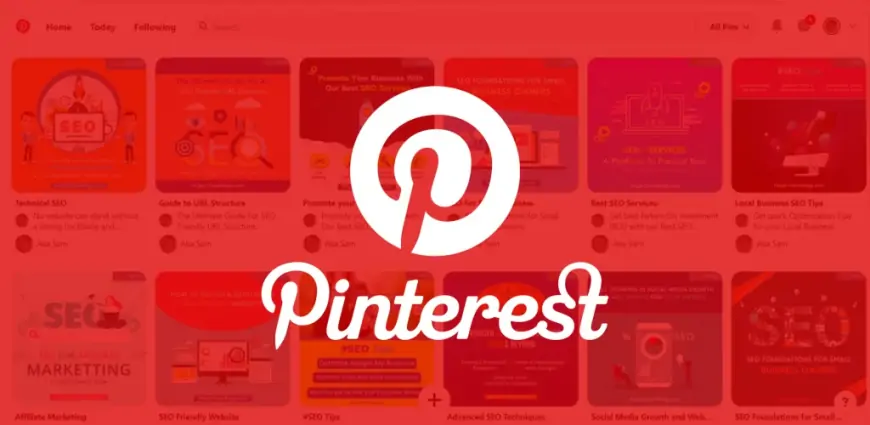What is Social networking and how does it work? Everything you want to know
Explore the concept and functionality of social networking platforms to understand how they operate and connect users worldwide.

What is Social networking?
Social networking involves using online social media platforms to connect with friends, family, colleagues or clients. These platforms, such as Facebook, X (formerly Twitter), Instagram, and Pinterest, serve both social and business purposes. Marketers use social networks to effectively attract customers. Boasting 2 billion daily users, Facebook remains the dominant platform in the US, along with other popular platforms such as Instagram, X, WhatsApp, TikTok and Pinterest.
How Social networking works?
Social networking encompasses the establishment and upkeep of personal and professional connections via technological means. It involves the utilization of social networking platforms like Facebook, Instagram, and X, which enable individuals and businesses to interact, fostering relationships and exchanging information, ideas, and messages.
Connecting with loved ones
Family and friends have the opportunity to reconnect and stay in touch via personal social networking platforms such as Facebook. They can share photos and updates on both everyday occurrences and significant life events. Moreover, individuals can connect with strangers who share similar interests, objectives, or experiences. Through features like groups, lists, and hashtags, which categorize topics, individuals can easily locate and interact with others.
Marketing opportunities
Marketers often utilize social networking platforms to enhance brand awareness and foster customer loyalty. Social media marketing facilitates the dissemination of a brand's messaging and content, rendering the company more visible and accessible to both prospective and existing customers.
For instance, an individual browsing through their X news feed may come across a brand for the first time and subsequently decide to purchase its product or service. Increased exposure to a company's brand amplifies its chances of acquiring and retaining new customers.
Social networking serves as a tool for marketers to bolster conversion rates. By cultivating a dedicated following, marketers gain opportunities to engage with both new and existing customers. Sharing blog posts, images, videos, or comments on social media platforms allows followers to interact, visit the company's website, and potentially convert into customers.
Leading Social networking sites

Instagram is a social media platform primarily centered around the sharing of visual content such as photos and videos. Similar to Facebook, users establish profiles and have access to a news feed. It enables users to upload media that can be enhanced with filters and categorized using hashtags and geotags. Posts can be shared either publicly or exclusively with followers.
Users have the ability to explore content posted by others, view trending posts, and follow other accounts. Moreover, they can curate the content shared by others into their own personalized feed. Over time, Instagram has introduced additional features such as Instagram Stories, Instagram Reels, and e-commerce functionalities.
Instagram offers its own messaging functionality, and it has integrated Facebook Messenger, allowing users to send direct messages to their Facebook contacts while using Instagram.
Established in 2010 by Kevin Systrom and Mike Krieger, Instagram was acquired by Meta (formerly Facebook) in 2012. With approximately 6.18 billion monthly visits, Instagram is a widely used social media platform.

Facebook is a social networking platform enabling users to connect with individuals, businesses, and organizations. Users can share updates, interact with others' posts, post photos, and share links to online content. Additionally, they can engage in live chats and upload and share videos.
Through Facebook Messenger, users can communicate directly with each other. They have the option to join groups based on shared interests and receive notifications about friends' activities and pages they choose to follow.
Originally designed to foster openness and social interaction, Facebook offers privacy controls allowing users to restrict access to their content, limiting it to specific friends, for example.
Founded in 2004 by Mark Zuckerberg during his time at Harvard University, Facebook is currently owned by Meta Platforms, of which Zuckerberg serves as CEO. It stands as the world's largest social network, boasting approximately 2 billion daily active users.
X

X is a social networking platform that enables users to communicate through concise messages known as tweets. Tweets are restricted to 280 characters, encouraging users to convey information succinctly. Users share posts, formerly referred to as tweets, which can range from informative and engaging to controversial. Posting, often termed as tweeting, is a form of microblogging, characterized by the rapid dissemination of content.
X is utilized by various individuals, including professional and citizen journalists, politicians, celebrities, marketers, and others. Established as Twitter in 2006 by Jack Dorsey, Noah Glass, Biz Stone, and Evan Williams, the platform was acquired by Elon Musk in October 2022. Musk subsequently rebranded it as "X" in July 2023. Currently, X is owned by X Corp., one of Elon Musk's holding companies.

Pinterest is a social media platform that encourages users to save and share images through virtual pinboards. It offers a creative space for organizing and categorizing valuable content.
On Pinterest, users discover images by browsing the web or the platform itself, saving these images to personalized online pinboards. Multiple pinboards can be created and arranged according to specific topics.
Once users have curated their boards to capture ideas and interests, they can easily access them at any time. Clicking on an image reveals related information associated with it.
Pinterest was founded by Ben Silbermann, Paul Sciarra, and Evan Sharp in 2009. It is owned by Pinterest, Inc., with Bill Ready serving as its CEO. As of 2022, Pinterest has reported around 450 million monthly active users worldwide.
Unique factors to consider
Crafting effective social networking marketing strategies isn't a universal formula due to the distinct characteristics of each business, including its target audience, background, and competitive landscape.
Social networking platforms often prioritize paid advertising, limiting the organic reach and engagement potential of unpaid posts for businesses. For instance, even if a company has 500 followers, not all of them may see a particular post.
Pros and cons of Social networking
The utilization of social networking platforms can have both beneficial and detrimental impacts on individuals and businesses. It is crucial to evaluate the pros and cons of engaging with these social media platforms before fully committing to them.
Pros
- Social networking enables individuals to maintain connections with distant or previously lost friends and family, fostering relationships that might otherwise be hindered by geographical barriers.
- Furthermore, individuals can expand their social circles by connecting with like-minded individuals who share common interests, facilitating the formation of new relationships.
- For businesses, social networking presents opportunities to engage with both potential and existing customers. Through these platforms, companies can establish and bolster brand visibility, leveraging features such as promotions and advertisements to enhance brand awareness.
- Moreover, social media platforms serve as valuable arenas for customer feedback and reviews, which can amplify a brand's reputation and credibility. Increased customer engagement and positive interactions on social media can translate to improved sales and enhanced search engine rankings.
- By actively participating in social networking, businesses can also showcase their commitment to customer satisfaction and quality service. For instance, promptly addressing customer concerns or complaints on platforms like X demonstrates responsiveness and dedication to consumer needs, further bolstering the company's reputation.
Cons
- Social media platforms can inadvertently amplify misinformation targeting individuals and businesses.
- Given its digital nature, false information spreads rapidly, particularly since 2012. Research indicates a 70% higher likelihood of misinformation sharing compared to factual content on X.
- Misinformation can severely impact a company's PR efforts, posing significant challenges.
- The anonymity inherent in online interactions necessitates caution when forming new personal connections.
- Establishing and managing a company's social media presence is time-intensive and costly. Effective social media marketing campaigns require a substantial follower base to yield a positive return on investment. For instance, sharing content with 15 followers cannot match the impact of reaching 15,000 followers.
What are the objectives of Social networking?
Social networking serves as a platform for individuals and businesses to exchange information, ideas, and messages. Moreover, businesses utilize social networks to enhance brand visibility, advertise products and services, and address customer inquiries and issues.
What advantages do social networks offer?
Social networks provide various advantages, such as facilitating connections and communication among individuals, enabling businesses to promote their brands, and swiftly disseminating valuable information to both individuals and organizations.
Why are Social networks important?
Social networks play a crucial role in facilitating relationships across geographical barriers and enhancing business productivity through marketing and advertising efforts.
What are the best 10 Social networking sites?
Some of the leading social networking sites include Facebook, X, YouTube, WhatsApp, Instagram, WeChat, TikTok, Facebook Messenger, Douyin, QQ, and Sina Weibo.
In summary, social networking facilitates connections among individuals, allowing them to engage with friends, family, colleagues, and businesses. It serves as a platform for sharing interests and concerns, fostering support and interaction.
For businesses, social networking is instrumental in brand building, product promotion, customer acquisition, and enhancing customer relationships and service. Despite potential drawbacks, its ability to enable instant message dissemination ensures its ongoing use and evolution in the foreseeable future.












































